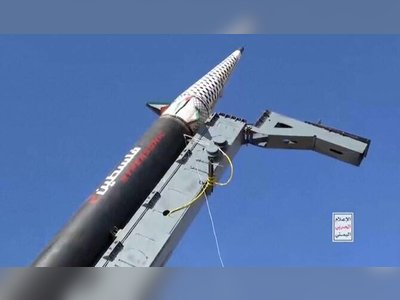Trump Deploys Nuclear Submarines After Threats from Former Russian President Medvedev
In a surprise escalation in U.S.–Russia relations, President Donald Trump has ordered the deployment of two American nuclear submarines to undisclosed locations following threatening remarks from former Russian President Dmitry Medvedev. The move comes amid rising diplomatic and military friction, tied to a ten-day ultimatum issued by the White House for Russia to agree to a ceasefire in Ukraine or face new sanctions.
A Threat Begets Action
This week, President Trump issued a stark message: Russia has ten days to halt its operations in Ukraine or face severe economic retaliation. In response, Dmitry Medvedev, now Deputy Chair of Russia’s National Security Council, posted a warning that Russia holds nuclear strike capabilities and will not yield to threats. Medvedev accused the U.S. president of pushing dangerous ultimatums and escalating beyond bilateral disputes.
Trump responded on Truth Social, stating he had ordered the deployment of two nuclear submarines “just in case these foolish and inflammatory statements are more than just that.” He added, “Words are very important and can often lead to unintended consequences. I hope this will not be one of those instances.”
Although Trump did not clarify whether the submarines are armed with nuclear warheads, their deployment underscores the serious tone of the standoff. The U.S. maintains over a dozen ballistic missile submarines as part of its nuclear triad—capable of launching warheads from undetectable positions at sea.
Medvedev’s Provocations and Moscow’s Silence
Dmitry Medvedev has long been seen as a hardliner since the full-scale invasion of Ukraine in 2022. Though his current political power is limited compared to President Vladimir Putin, his social media activity has been increasingly belligerent. For over three years, Medvedev has published provocative posts aimed at the West—many of which were previously ignored. But his most recent comments triggered a rare and immediate reaction from a sitting U.S. president.
Despite the gravity of the exchange, official Russian institutions—the Kremlin, the Foreign Ministry, and the Ministry of Defence—have yet to issue any formal response. Local analysts suggest that Moscow is in a state of uncertainty, trying to assess the seriousness of the U.S. submarine deployment and its implications.
The Moscow Stock Exchange reacted immediately, dropping sharply after Trump’s announcement. Russian media has expressed shock at the scale and tone of Trump’s reaction, with one publication suggesting that even Medvedev himself was likely surprised by the U.S. president’s sudden retaliation.
Diplomatic Shadows: The Whitkov Factor
Amid the heightened rhetoric, Trump’s special envoy, Steve Whitkov, is expected to arrive in Russia in the coming days, reportedly to meet with senior officials—possibly even Vladimir Putin. Russian media mocked the envoy’s sudden emergence, comparing him to “a rabbit pulled from a magician’s hat,” with Trump cast as the magician.
Whether Whitkov’s visit can ease tensions remains uncertain. With Washington setting a hard deadline for Russian de-escalation in Ukraine, and Moscow offering little sign of compliance, the mission is being viewed with skepticism in both capitals.
Nuclear Muscle and Strategic Messaging
The exact location of the deployed submarines remains classified. In the past, the U.S. has used the publicized movement of its nuclear submarines as a message—part deterrent, part warning. However, it remains unclear if Trump’s move is a symbolic gesture or a strategic repositioning with tactical implications.
Secretary of State and National Security Advisor aides have attempted to downplay Medvedev’s relevance, stating that he holds no direct decision-making power in Moscow. Yet Trump’s decision to act—rather than merely respond rhetorically—marks a significant departure from previous administrations’ handling of such threats.
Looking Ahead: The Ten-Day Countdown
The clock is now ticking. Trump’s ultimatum expires at the end of next week. If Russia fails to agree to a ceasefire in Ukraine, sweeping sanctions could follow—targeting not only Russia but its major trading partners, including India and China.
Whether this will deter Moscow remains uncertain. Trump himself has publicly expressed doubts, saying he doesn’t believe sanctions will change President Putin’s behavior. The unfolding crisis raises fresh concerns about unintended escalation, especially given the involvement of nuclear-capable platforms.
In Washington, the White House insists this was a necessary move to protect American interests and signal resolve. In Moscow, analysts describe a sense of disbelief, with some suggesting Medvedev’s post was never intended to provoke a direct military response.
The coming days are critical. With submarines in motion, envoys en route, and economic sanctions on standby, the U.S.–Russia relationship enters one of its most volatile chapters in recent memory.









